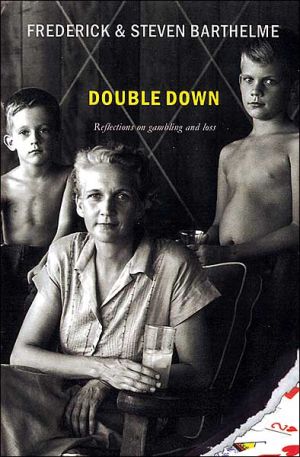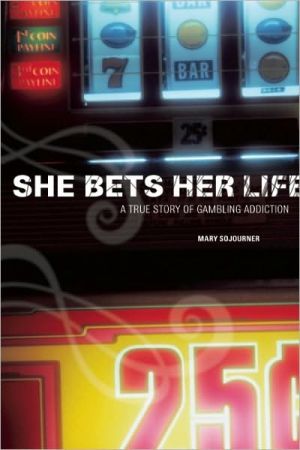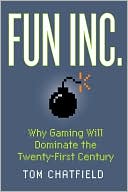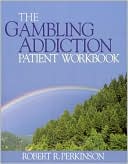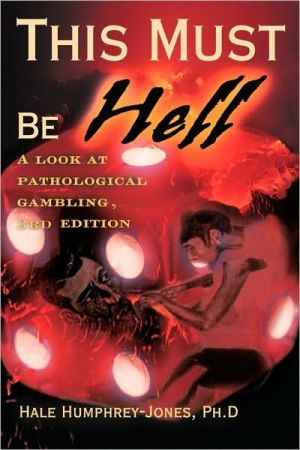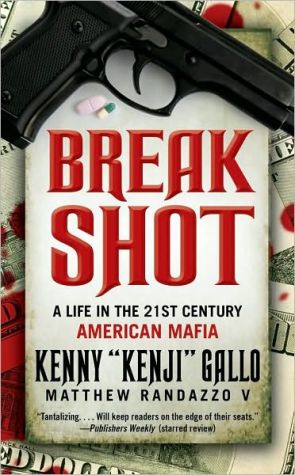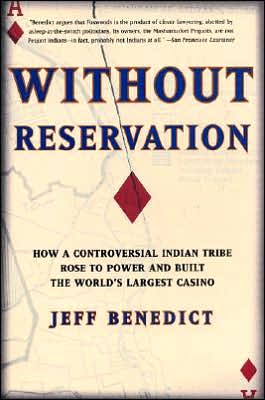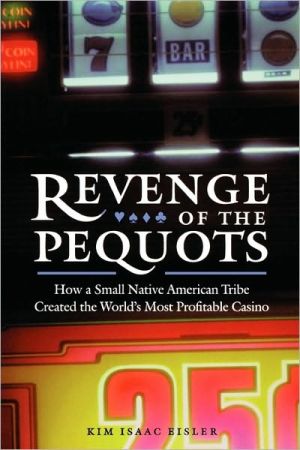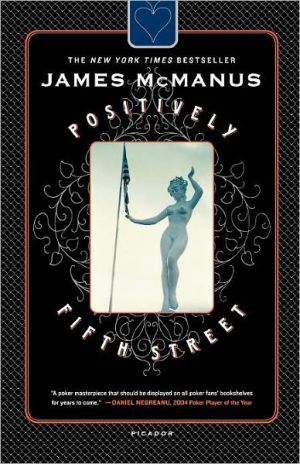Double Down: Reflections on Gambling and Loss
"So each night begins. One of us picks up the other and we drive into the Mississippi darkness, headed for a place where everything is different." This first nonfiction book by Frederick Barthelme, author of BOB THE GAMBLER, and his brother and colleague Steven is both a story of family feeling and a testimony to the risky allure of casinos. Within a year and a half, the authors had lost both of their parents, less than a decade after their brother Donald died. Their exacting father had been...
Search in google:
"So each night began. One of us would pick up the other and we'd make the drive into the Mississippi night, headed for a place where everything was different." Within a year and a half, Frederick and Steven Barthelme had lost both of their parents, less than a decade after their brother Donald had died. Their exacting father had been a prominent modernist architect in Houston; their mother, the architect of this family of seven, which she "invented, shaped, guided, and protected." "We were on our own in a remarkable new way," the Barthelmes write, "and we were not ready." What followed was a several-year escapade during which the two brothers lost close to a quarter of a million dollars in the garish gambling boats off the Mississippi coast. They played to enter that land of possibility that is addiction. Then, in a bizarre twist, the brothers were charged with violating state gambling laws, fingerprinted, and thrown into the surreal world of grand juries, prison visits, and felony prosecution. Double Down is the sometimes wryly told, often heartbreaking story of how they got into this predicament and the role played by the loss of their parents. It is also a reflection on the pull and power of illusions, the way they work on us when we are not careful. Chicago Tribune Double Down is a good gambling story, maybe worth every penny the Barthelmes lost.
Chapter 1 Mississippi We arrived in Hattiesburg almost ten years apart. We'd held plenty of other jobs—cab driver, construction worker, advertising writer, journalist, art installer, architectural draftsman—and we'd each done stints at The Johns Hopkins University in Baltimore for graduate degrees, and now we were ready to settle down and teach.\ Rick arrived first, in the mid-seventies, terrified because Mississippi had that reputation, that myth the prominent aspect of which wasn't the lovely Old South with its high manners and splendid architecture, but ignorance, burning, lynching. Being from Houston, having lived five years in New York City, and just out of graduate school, he figured he was profoundly enlightened and Mississippi wasn't. Indeed, his introduction to Hattiesburg was at an all- night gas station on Highway 49 where a lone teenager- slash-halfwit was capturing "pinching" bugs attracted by the bright lights and corralling them in a five- gallon bucket of sand he kept inside his little glass booth, a diversion he favored because, as he said, he liked to watch the bugs kill each other.\ This was two in the morning, and Rick and his girlfriend had been driving all day from Baltimore, where the morning before they'd had brunch with the British literary critic Tony Tanner in the polished- mahogany restaurant on the first floor of a hundred- year-old hotel. Now instead of talking about postmodernism they were facing it, and it didn't seem to know their names.\ So Rick spent the first six weeks of his employment at the University of Southern Mississippi commuting from Houston, a safe four hundred and fifty miles away. In time he discovered that Mississippi was as civilized as anywhere else. The gas jockey notwithstanding, things had apparently changed, and at least in Hattiesburg and around the university, the myth was a phony. In fact, taken as a whole, the people he met in Mississippi began to seem gentler and more humane than many he'd run into in ostensibly finer settings. Probably there were remnants of the "old" Mississippi elsewhere in the New South of the seventies, but those remnants weren't on public view, did not seem dominant. In spite of the benighted reputation, Mississippi seemed more than its share enlightened.\ Steve arrived nine years later, and if some of his impressions were different, maybe that was because when he arrived in Hattiesburg he had already spent the previous two years teaching at a university in Monroe, a dim, depressed, trash-strewn Louisiana town where even the snakes hung their heads. If the races seemed to him stiffer with each other in Mississippi than they had been in Louisiana, Hattiesburg itself was clean and bright, and the people were friendly. There was more money apparent, and the roads were mostly paved. During his first weeks in town he noticed two, maybe three Volkswagen beetles. You wouldn't have found them in Monroe.\ So there we were, college professors and fiction writers. We were middle-aged, born in Texas, raised in a family of mostly fallen Catholics, with a father who was a successful and innovative architect and teacher, and a mother who was an English teacher and a reader, an actress in college who had wanted to pursue the stage but didn't quite escape the conventionality of her time. One older brother, Don, was a leading literary figure. Two other older siblings made their livings writing: Joan as a public relations vice president for Pennzoil Corporation, Pete as a Houston advertising executive and an author of mystery novels.\ Growing up, we were trained in restlessness and doubt. Conformity wasn't prized. The house our father designed in 1939—a large, low, flat-roofed box with a single small square room standing up on top—was an anomaly in a neighborhood of ranch- style and Tudoresque homes. Our house looked like a large, rectilinear Merrimac. On the empty grasslands west of Houston, it startled passersby.\ The house had been made of wood alone, but later the exterior was covered in copper. Our father had this idea about copper. He had read that when sprayed with a certain acid compound, copper would discolor in a particularly attractive way, so he hired a contractor and several workmen and had the vertical siding covered in sheet copper. Then he bought a sprayer, a two-foot tank with a manual pump, and he mixed up a batch of the acid that was going to make the copper come alive in an exquisite turquoise. Well, it didn't happen. The copper asserted itself, and from that time forward the house was—exquisitely—brown.\ Inside, it was a hotbed of modern furniture: eelegant Saarinen chairs, the bent birch of Aalto dining tables and chairs, almost every piece of furniture or fabric that Charles and Ray Eames ever designed, from the little wire-frameeeee footstools all the way up to, much later, the big rosewood and black leather chair, now ubiquitous. The rest of the furniture Father built himself, or had us build under his supervision. Things were always being redone, reconstructed, redesigned in accordance with some new idea he had.\ We went to Catholic schools, and there, along with the conventional subjects, we were schooled in guilt. This was before traditional Catholicism lost its purchase, before "mea culpa" became "my bad," or however it's now translated.\ The Catholics were good at their jobs. You're eight, maybe, and you go into your older sister's room and take a new yellow pencil away from her desk and erase some drawing you have been working on, and suddenly you think: This is a sin. I'm stealing. What you're stealing is eraser. But that's not the best part. The best part comes next, when the eight-year- old thinks: No, this is prideful worry. Worrying too much about sins is a sin. It's "scrupulousness." For our purposes, the complaint that this indoctrination is barbarous is secondary to the idea that a Catholic education can accustom a soul to a high level of stimulation, and if you get too comfortable later in life, you miss it.\ After high school, we each left our parents' house and the Catholic schools, Rick to Tulane, back to Houston, then New York; Steve to Boston, Austin, and California. We ran through three or four colleges apiece, worked different jobs, were rarely in the same city for more than a couple of months at a time, but over that period, in different ways we were doing the same thing: in fits and starts, we learned to write. Significantly, we learned the skill of editing—what our father was always doing with the house—which is in itself a school of dissatisfaction.\ Years passed. We got older, more tired, less strident. We tried, not too successfully, to learn to lighten up. We went to Mississippi, where our lives were all aesthetics, literature, art, music, film, narrative, character, culture—teaching school. Books and movies in a pleasant town, handsome beyond what we had imagined, lush and green year-round, sixty thousand beings at the intersection of two highways. Originally a lumber and rail town, crossroads in a pine forest, Hattiesburg was a suburb attached to no city, distantly resembling some suburb of Houston twenty years before. Perfectly congenial, if a little short on excitement.\ After teaching a few years, we had lost some connection with the world outside the academy, the ordinary world pictured in USA Today. We didn't drink very much, didn't smoke, took only sanctioned meds. Sex, drugs, and rock 'n' roll was a joke. We became, through no fault of our own, adults. Kids came to the writing program from all over the country, often from much better schools, and we helped them find things to write about, find their talents. We knew it was awfully sweet work, in our awfully sweet lives.\ As college professors we were automatically in an out-of-harm's-way subculture, but we watched TV and read newspapers, so we had some idea of what the rest of the world was like. We just weren't in it exactly. In fact, maybe nobody of the middle class was much in it—that was the point of being middle class, yes? Buy your way out of the threatening and the immediate. The downside being that you lose some edge. In the worlds of kids or poor people or maniacs, there's always a lot of stuff happening, people doing crazy things, acting up, risking life, being desperately in love or terribly angry—a lot of stimulation.\ So we nodded, and folded our hands, and thought. There inside our comfortable, well- maintained apartments. We lived in pleasant circumstances with work that was agreeable, but after all was said and done there was still this old furniture piled up in the garage—curiosity, recklessness, guilt. By training we were dissatisfied, by temperament restless.\ Enter the boats. Sometime in 1992 casinos moved in on the coast and, observing a legal nicety requiring that casinos be waterborne—which was part of the bargain struck between the gaming lobby and the legislature to legalize gambling in Mississippi—they appeared as paddle wheelers that were docked against the beaches. They were cramped, crowded, intimidating. Long lines of customers waited just to get in, and inside the players were dead serious and going at full speed. The pit people were gruff and the atmosphere was sweaty and sleazy. If you sat down in front of a dealer, you'd better know what you were doing. But the boats were right there, and eventually we went to see what they were about.\ The beaches had never been much good. The sand had been sucked out of Mississippi Sound and spread alongside Highway 90 like something in the bottom of an aquarium. It looked wrong, like a bad hairpiece. The water was the color of pot roast; locals said people loved Florida's emerald water, but fish, shrimp, and crabs preferred Mississippi's brown, where they were an industry. The towns strung along the coast had some of the dumpy charm of Galveston, where our father was born, where we'd visited our grandparents as children, and where we'd played on the winningly disheveled Stewart's Beach.\ From Biloxi to Pass Christian to Bay St. Louis and Waveland, the coast towns were similarly distressed places, down at the heels, beat-up, and ugly, but now, with the advent of gaming (they love to call it gaming), the towns were tarting up in a new, too wholesome way. The cheesy glitz of miniature golf and bright pink seashell emporia gave way to paddleboat quaint: cheap tux shirts, black bow ties, red cartoon suspenders. Gaming interests wanted casino gambling to seem harmless, fun for the whole family, so the newer developments worked along those lines. The architecture quickly turned Disneyesque: pirate ships and mock cowboy saloons slathered in happy neon (splashy pots of gold) instead of the tiny, furtive neon ("Nudes! Nudes! Nudes!") of the old beachfront strip. Mimicking Las Vegas, corporations were building twenty- and thirty-story hotels, huge parking lots, restaurants, and stores to attach to the casinos. They had day care if you needed it.\ Biloxi had a great old restaurant called Fisherman's Wharf, a shoddy wood-frame thing built on telephone-pole pilings right on the sound. It had been serving seafood for more than forty years. Family-owned, dilapidated, but the food was marvelous in the way that only coastal dives can manage—fresh fish, fried chicken, big glasses of sweet tea. Gerald Ford had eaten there, and the restaurant had pictures of him arriving in a big limousine. Ford's plate was preserved behind glass, along with the silverware he'd used, his napkin, the menu he'd looked at.\ After 1992, an Oriental-motif casino called Lady Luck appeared next door—a barge decked out like a Chinese restaurant, complete with dragons and lanterns and fans. One Saturday when Rick and his girlfriend, Rie, were eating at Fisherman's Wharf, they spent the meal eyeing this new casino. Afterward, they decided to give it a try.\ Lady Luck was larger than the paddleboats—higher ceilings, more room. It was garish and silly inside, but it had charm. The Oriental decor was oddly coupled with loud pop music, waves of colored lights, and women in startlingly short skirts and tight tops. It was chilly in the casino, even in August.\ Rick and Rie walked around, looked over the shoulders of the table-games players, tried their hands at video poker and the slot machines. They started with quarters and won a little, then moved up to half dollars and dollars. At a bank of dollar machines, one of them hit a small jackpot, and then the other hit one. Two sevens and a wild cherry. A minute later, Rick hit a five-hundred-dollar jackpot. Pretty soon they were carrying around buckets of dollar tokens, and gambling didn't seem so bad. They walked out with eleven hundred dollars of the casino's money, feeling as though they'd won the lottery. Eleven hundred dollars that wasn't theirs.\ Later, a similar thing would happen to Steve and Melanie, his wife.\ We learned that this was typical, that it happened just this way for a lot of people who went to casinos. You win something sizable, and thereafter gambling takes up residence in your imagination. You remember the visit. It's a key to the business—the first time you walk away with the casino's money. When we compared notes about these first trips, we indulged a light euphoria. Casinos were garish and grotesque and the people might be seedy, but the money was swell. We talked about buying books on slot machines, finding out which ones to play, what the odds were, how to maximize advantage and minimize risk. We were serious and excited; something new had come into our otherwise quiet lives. Neither of us had any idea how much those first jackpots would eventually cost.\ Copyright (c) 2000 by Frederick and Steven Barthelme. Reprinted by permission of Houghton Mifflin Company.
Authors' NoteviiI1.Mississippi32.Family113.Tearing Down the House24II4.One Night395.Table Games596.Gamblers707.Dreamers798.Slots889.Thrall9810.Money Plays10711.Courting Loss115III12.Eighty-Sixed12513.Don't Know Quit13014.Next Year13915.Booked14916.Insurance16517.Law16918.Spotlight17819.Father18420.At Last195
\ Chicago TribuneDouble Down is a good gambling story, maybe worth every penny the Barthelmes lost.\ \ \ \ \ Publishers Weekly\ - Publisher's Weekly\ In the legal system, whoever tells the best story wins. But when two "workaday English teachers"--who happen to be the writers Frederick Barthelme (Bob the Gambler) and Steven Barthelme (And He Tells the Horse the Whole Story)--gamble away their $250,000 inheritance in a few years and are indicted for conspiracy to defraud the casino where they were regulars, the tale they have to tell is far more richly complicated--and haunting--than any their lawyer could present. Their narrative seductively juxtaposes the stark loss of their parents, their family's "psychological arithmetic" and the "miraculous multiplication" of winning at the blackjack tables, moving fluently between an account of the brothers' fall into addiction and their memories of a family life that was like "a lovely old-fashioned movie with snappy dialogue and surprising developments, high drama and low comedy, heroes and villains, wit and beauty and regret." By turns dazzlingly canny and achingly abject, the Barthelmes, who write in a single voice, lure the reader into the intimacy of their self-deception. Intoxicated by their brinksmanship and their clever comebacks, readers will hope against hope they'll fight their way back from staggering losses. In retrospect, the brothers' gaming philosophy--"We would have been willing to win, but we were content to lose"--was sustaining in the casino's mirror world where "money isn't money," although, as the authors wryly observe, it crumbled when they were awaiting a legal verdict. (Nov.) FYI: Filed a few weeks after the publication of Bob the Gambler in 1997, the charges against the brothers were dismissed by the Mississippi State Circuit Court in August 1999. Copyright 1999 Cahners Business Information.\ \ \ Library JournalAt first, this dark memoir seems like a simple confessional about how two fiftyish writer-academics lost a quarter-million-dollar inheritance in the late-night world of Mississippi riverboat casinos. (In 1997, the brothers were charged with cheating a Mississippi casino and still await trial.) As book-smart gamblers, the Barthelmes indulge in overtipping and betting ludicrous amounts; they are smarter-than-thou, which is their downfall. Perhaps some readers will see the deaths of the Barthelmes' parents as sufficient cause for their fall from grace; faced with real pain, the brothers prove inept at problem solving. But the gambling, compulsiveness, and midlife boredom predate their parents' deaths; and the gambling snowballed because of their new-found money, which the brothers burn out of resentment of their Napoleonic father. Beautifully evoking the gamblers' addiction, their mesmerizing account is best read as a novel Camus might have imagined, with the writer/protagonists as their own lost characters. A work of high art; enthusiastically recommended. [Previewed in Prepub Alert, LJ 7/99.]--Marty Soven, Woodside, NY Copyright 1999 Cahners Business Information.\ \ \ \ \ Francine ProseWhat gives their beautifully written book its power are the same gifts that distinguish the Barthelmes' fiction: their intelligence, their eye for detail, and their wry bemusement at the unlucky, unlikely hands that life so often deals.\ —Elle Magazine\ \ \ \ \ Robert R. HarrisTo double down in blackjack is to double your original bet before taking a hit, or a third card. Usually you want to double down when your first two cards total eleven and the dealer is showing, say, a five or a six; in this case, the odds can actually be with you, and the chance of really having fun is greatly increased. For the Barthelmes the phrase also suggests the dual downward spirals they suffered in losing so much money and their parents in a short span of time. They relate both stories in a style so seamless that it's hard to tell you are reading a collaboration. The narrative voice varies from the first-person plural to the third person to the second person, and it's never jarring and almost always absorbing. \ —The New York Times Book Review\ \ \ \ \ Tom DeHavenSuperb...It's a brutally candid, unflattering self portrait of two successful middle-aged men who managed, somehow, to sail through their adulthood behaving like "overage children"...Double Down is also an unsentimental, even edgy meditiation on the loss of one's parents and the often crazy-making trauma of being orphaned in mid-life.\ Entertainment Weekly\ \ \ \ \ \ Wall Street JournalDouble Down: Reflections on Gambling and Loss, jointly written and told in the third person, is an exquisitely crafted memoir of their three years in the grips of Mississippi casinos. It is distinguished from the raft of recent addiction tales not just by the quality of the prose but also by a bizarre turn that landed the brothers in the headlines and in the maw of the Mississippi judicial system. In December 1997, the authors were charged with felony conspiracy to defraud the Grand Casino in Gulfport, Miss.—essentially conspiring with a dealer in order to win at blackjack.\ \ \ \ \ Kirkus ReviewsNeither Frederick (Bob the Gambler, 1997, etc.) nor Steven (And He Tells the Little Horse the Whole Story, 1987, not reviewed) has tried his hand at an extended work of nonfiction before, but this grim tale of compulsive gambling and personal disaster should present no problems apart from the ones built into their subject. Rick (as Frederick is called) and Steve were transplanted Houstonians, now teaching writing at Southern Mississippi, when they discovered the casinos moored in the Mississippi River in Gulfport, an hour's drive from them. The sons of an eccentric but highly regarded architect and a former schoolteacher and actress, they plunged into the timeless, neon world of the casino with abandon. When the death of their parents brought them a substantial inheritance, they began to gamble with a feverishness that resulted in their loss of over a quarter of a million dollars over some two years. In the end, they found themselves indicted on charges of conspiracy to defraud their regular casino, allegedly in cahoots with a dealer they barely knew. The memoir that results from this spiraling journey into darkness is strange in the extreme. Although neither of the authors denies he has a serious problem, their narrative all too often reads like the series of rationalizations a compulsive gambler gives before he runs out of excuses. Rick and Steve describe a sort of sealing off of emotion as a family trait, one that became a dangerous safety valve in the casinos, where their studied uncaring made it possible to withstand the batterings of repeated loss. Regrettably, that sealing off comes into play in their own writing, giving it an eerily disembodied quality that makes for depressingreading far beyond the darkness of the subject matter. A queasy, uneasy mixture uniting confessional autobiography with arch literary navel gazing. (16 b&w photos)\ \
